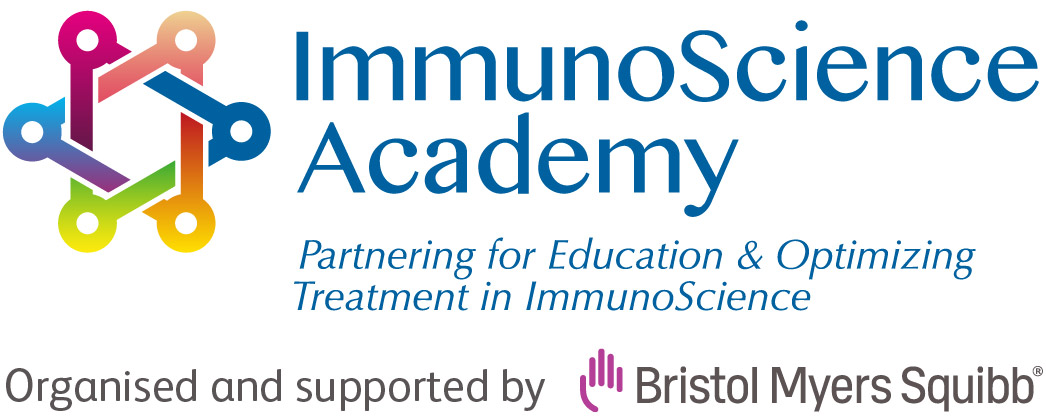Educational Meetings
CANCER ASSOCIATED THROMBOSIS
13 October 2022
Materials from past ISA meetings are only available for your information, it reflects the state of sciences at the time of the meeting.
After the national Face-to-Face meetings in 2018 and 2019, the lmmunoScience Academy meetings were turned in a fully virtual setting in 2021, due to the COVID-19 pandemic.
On Thursday October 13th 2022 we met again in person on 4 different locations in Belgium to discuss the topic ‘Cancer Associated Thrombosis’
View below the slides per expert-topic, presenting: Thrombosis and cancer: how to manage your patient?

MECHANISMS OF CANCER-ASSOCIATED THROMBOSIS
Speaker : Prof Kristin Jochmans | Clinical Biology - Hematology
In her presentation, Prof Jochmans provides an overview of mechanisms of Cancer-Associated Thrombosis (CAT). Starting from the prevalence data of CAT across cancer subtypes and the rising incidence throughout the years, she focuses on the pathophysiology of CAT, describing the relationship between VTE and cancer, the risk factors and the clinical consequences of CAT on overall outcomes in oncology patients. Prof Jochmans concludes her presentation by emphasizing the unmet needs in this patient population.
TREATING CANCER-ASSOCIATED THROMBOSIS: THE PAST, PRESENT & FUTURE
Speaker : Prof Peter Verhamme | Vascular Medicine and Haemostasis
What are the challenges in the treatment of CAT? From LMWHs to DOACs, prof Verhamme examines the therapeutic options available for managing CAT - with a focus on their safety profile - and how they evolved over time. The presentation depicts the impact that antithrombotics have on the overall cancer outcomes with regards to tumor microenvironment and metastases. The final slides focus on the future of anticoagulation and the new anticoagulants on the horizon.


DRUG-DRUG INTERACTIONS
Speaker: Prof Lorenz Van der Linden | Clinical Pharmacology and Pharmacotherapy
One crucial aspect in starting antithrombotic treatment is related to Drug-Drug Interaction (DDI) in cancer setting. What do we know on the impact of DOACs on anticancer drugs? What is the impact of the cancer drugs on anticoagulants? Prof Van der Linden, after comparing DOACs and LMWHs from PK/PD viewpoint, addresses the theme providing data and practical tools HCPs could use in daily clinical practice when looking for DDIs between immunotherapies and anticoagulants.
FROM THEORY TO PRACTICE: PATIENTS WITH THORACIC MALIGNANCY AND INCIDENTAL VENOUS THROMBOEMBOLISM
Speaker : Prof Paul Germonpré | Respiratory Oncology
NSCLC is in the top 10 cancer types to have a high incidence rate of venous thromboembolism (VTE) within the first 6 months of cancer diagnosis. Prof Germonpré discusses the management of a patient with NSCLC for whom there is an incidental finding of pulmonary embolism. He highlights the impact of incidental VTE on patient outcomes as well as the associated risk of recurrence and major bleeding. Prof Germonpré also discusses the scenario where a patient has incidental (isolated) subsegmental PE and its management.


FROM THEORY TO PRACTICE: PATIENTS WITH GASTROINTESTINAL MALIGNANCY AND ON ANTICOAGULATION DUE TO THROMBOSIS
Speaker : Prof Eric Van Cutsem | Digestive oncology
DOACs are currently a recommended treatment option for CAT compared with LMWH, with respect to recurrence and major bleeding. However DOACs should be used with caution in patients with gastro-intestinal malignancies due to an increased risk of gastro-intestinal bleeding. In his presentation, Prof Van Cutsem reviews the anticoagulants used in the management of CAT, their efficacy and safety data in terms on VTE and bleeding. Hereby focusing special attention on patients with gastro-intestinal malignancies and bleeding data, both in risk and in gastro-intestinal bleeding sit
FROM THEORY TO PRACTICE: PATIENTS WITH DEEP VEIN THROMBOSIS AND MULTIPLE MYELOMA
Speaker: Prof Cédric Hermans | Haemostasis – Thrombosis/Haemophilia
Focusing on topics such as pathophysiology of thrombosis, patient case study and current thrombosis management, Prof Hermans provides an expert view on clinical challenges of thrombosis for patients with multiple myeloma.

